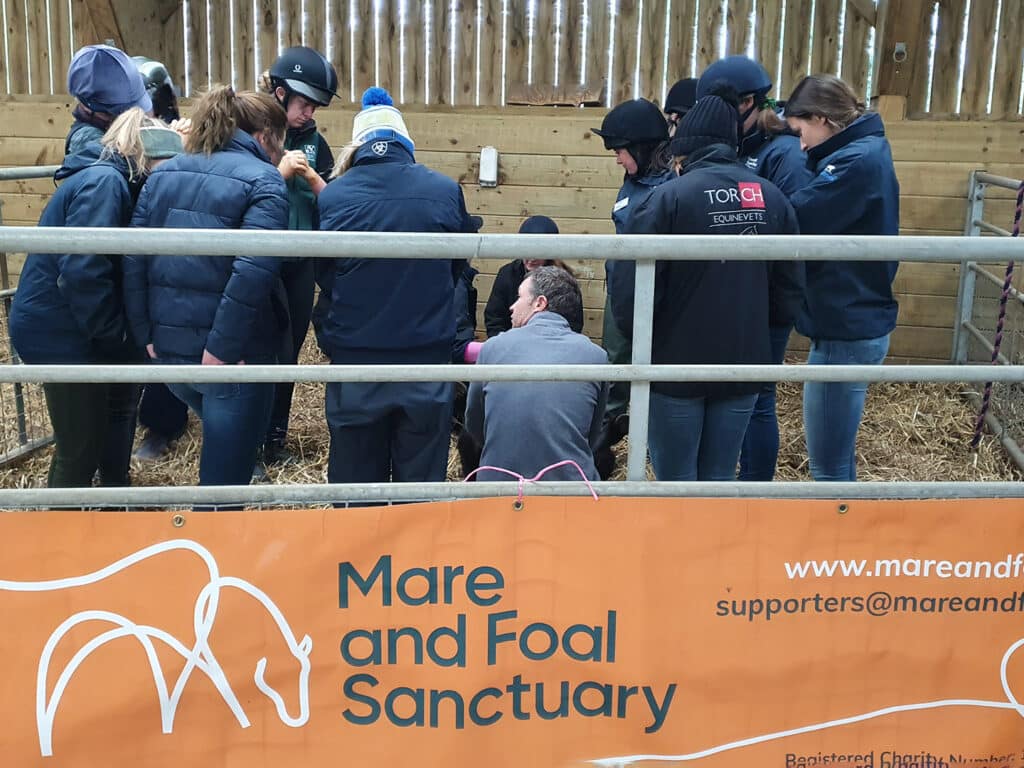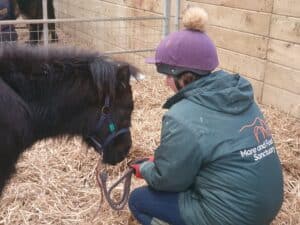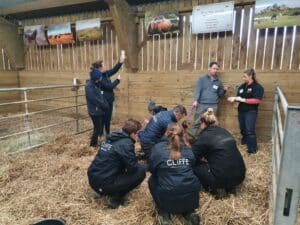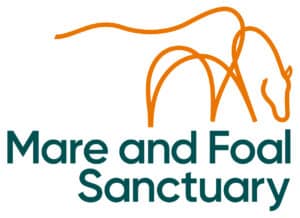
Collaboration with BEVA helps create a positive future for ponies
At the start of March, 20 vets attended a field castration training day hosted by The Mare and Foal Sanctuary and held at the Dartmoor Pony Heritage Trust (DPHT). Training was given by local British Equine Veterinary Association (BEVA) representatives who are all specialists in the care of semi-feral equines.
At the start of March, 20 vets attended a field castration training day hosted by The Mare and Foal Sanctuary and held at the Dartmoor Pony Heritage Trust (DPHT). Training was given by local British Equine Veterinary Association (BEVA) representatives who are all specialists in the care of semi-feral equines. It allowed for a unique career professional development opportunity in which the vets were able to castrate nine semi-feral Dartmoor ponies under the guidance of BEVA experts.
 As the name suggests, field castration involves gelding a horse or pony outside of a hospital environment. The Mare and Foal Sanctuary has strong links to Dartmoor and know the importance of field castration. Head of Equine Welfare at the sanctuary, Syra Bowden, explains: “The Dartmoor Hill Pony is a fantastic breed and it’s key that we ensure its continuation. In general, it’s more difficult to find homes for colts who have not been castrated, so this day has greatly benefitted the ponies. By facilitating this day, we also help to ensure vets have those skills in place should they ever be needed.”
As the name suggests, field castration involves gelding a horse or pony outside of a hospital environment. The Mare and Foal Sanctuary has strong links to Dartmoor and know the importance of field castration. Head of Equine Welfare at the sanctuary, Syra Bowden, explains: “The Dartmoor Hill Pony is a fantastic breed and it’s key that we ensure its continuation. In general, it’s more difficult to find homes for colts who have not been castrated, so this day has greatly benefitted the ponies. By facilitating this day, we also help to ensure vets have those skills in place should they ever be needed.”
It’s not just the wider Dartmoor pony population that will benefit from the day. The nine Dartmoor ponies castrated also have a brighter future ahead of them. One possibility is returning them to Dartmoor to run as a gelding herd. Where they can live as naturally as possible, but without the risk of indiscriminate breeding. Or should their owner choose, they’ll be able to find loving homes more easily as geldings.
The day was very successful and provided delegates with theory sessions on castration techniques and complications, and on field anaesthesia, which comes with its own challenges. The delegates then had the opportunity to take part in practical sessions, including castrating the colts.
Clodagh Mullins, a delegate from Cliffe Equine Vets, commented: “Today has been a useful refresher on castration in a supervised environment. The field anaesthesia session was really helpful, too. The handlers from The Mare and Foal Sanctuary were brilliant and the day went smoothly. I’d definitely attend a Mare and Foal Sanctuary and BEVA collaboration event in the future and I’d recommend it to others.”
 As well as organising the event, staff from The Mare and Foal Sanctuary were present on the day using their expertise to help with handling the semi-feral colts. Alison Benwell, one of the speakers from BEVA, said: “The Mare and Foal Sanctuary staff are worth their weight in gold and were integral to the smooth running of the day. Their knowledge and handling skills were fantastic, particularly considering these ponies have only just come off the moor.
As well as organising the event, staff from The Mare and Foal Sanctuary were present on the day using their expertise to help with handling the semi-feral colts. Alison Benwell, one of the speakers from BEVA, said: “The Mare and Foal Sanctuary staff are worth their weight in gold and were integral to the smooth running of the day. Their knowledge and handling skills were fantastic, particularly considering these ponies have only just come off the moor.
“It’s been a wonderful day, everyone has worked well together and learnt a lot. The collaboration between the sanctuary and BEVA was fundamental to the success of the event, it was faultless! Everyone was so friendly and welcoming, I’d 100% love to take part again in the future.”
Collaborations such as this one are an essential part of improving equine welfare at a national level. Rescue situations involving unhandled equines are often complex, having vets with the skills to carry out procedures in the field is increasingly important. The connections built from the training day could go on to help better serve equines in the future.



